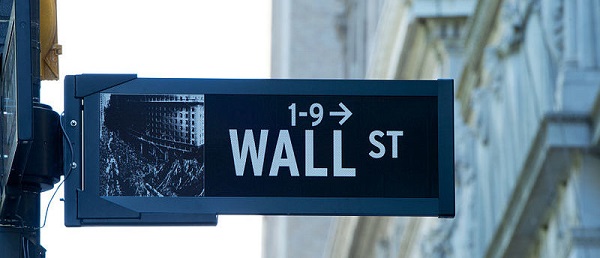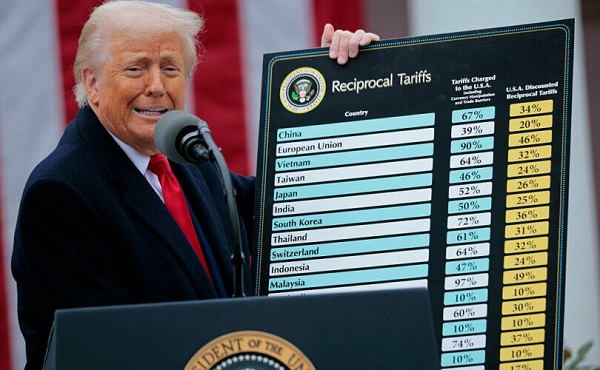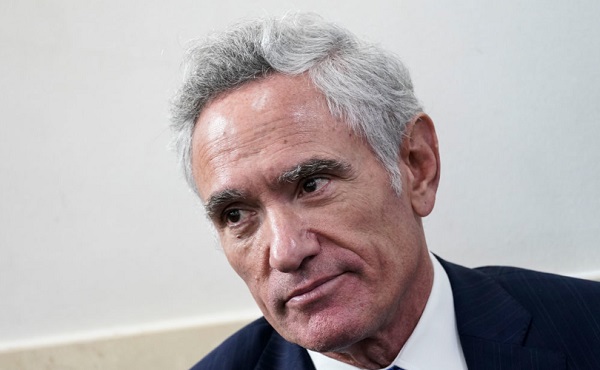Daily Caller
‘He’s Willing To Hit Them Hard’: American Adversaries Pull Out The Stops To Derail Trump’s White House Bid

From the Daily Caller News Foundation
By Jake Smith
Former President Donald Trump dealt with some American adversaries harshly during his first term, threatening them with military action and choking their economies. Now that Trump is on the verge of being reelected, those adversaries are panicking — and trying to prevent Trump from entering the White House.
Trump is in a dead-heat race against Vice President Kamala Harris in next Tuesday’s presidential elections. Nations making up the so-called “Axis of Evil” — especially Iran and China — have made it clear they do not want Trump to win. That’s borne in part out of anger against Trump for his actions during his first term and fear of what he will do in his second, according to a review of multiple reports.
It’s an open secret that Iran and China have attempted to interfere in elections in the past, as they are this year. Both countries have utilized a variety of methods to interfere with Trump’s bid for the White House. That’s particularly true for Iran, which has attempted to kill Trump and waged cyberwarfare operations against his campaign.
“While the Islamic Republic continues to mean what it says when it calls for ‘death to America,’ there is only one current presidential contender whom the regime and its terrorist network are trying to kill. That is Donald Trump,” Behnam Ben Taleblu, a scholar on Iranian affairs at the Foundation for Defense of Democracies, told the Daily Caller News Foundation. “That is born of a clear understanding in the regime’s mind that he is the candidate of real pressure.”
Trump’s approach to Iran — the largest state sponsor of terrorism and an accomplice in the killing of scores of U.S. troops over recent years — was described by his administration as a “maximum pressure” campaign. Trump withdrew from the Obama-era Iran nuclear deal in 2018, arguing that it allowed Tehran to rake in billions of dollars under eased sanctions while failing to prevent it from building a nuclear weapon. He replaced the deal with harsh sanctions that cut off many of the country’s revenue streams.
“Trump demonstrated he’s willing to hit them hard. This isn’t the same approach we’re seeing from the current administration, which is why Iran’s focus remains on Trump,” former senior Pentagon official and Strauss Center fellow Simone Ledeen told the DCNF.
Iran’s network of terrorist groups suffered from a lack of funding as a result of Trump’s approach, but remained incredibly hostile to the U.S., launching multiple attacks on American forces in the Middle East in the following year. As attacks escalated, Trump made the decision to launch a drone strike and assassinate top Iranian general Qasem Soleimani while he was visiting Iraq in 2020.
Soleimani was a pivotal figure in the Iranian military, and his death greatly angered Tehran.
“The Soleimani strike… exposed some of Iran’s vulnerabilities,” Ledeen told the DCNF.
Iran has since staged multiple unsuccessful assassination attempts against Trump through various actors. The reports on the matter have seemed to escalate in recent months as the election draws close; U.S. intelligence officials briefed the Trump campaign in September on a previous assassination operation, which failed.
Iran has also carried out various cyberwarfare campaigns against Trump ahead of the election, some of which have been successful. Iranian-backed hackers gained access to internal Trump campaign documents — specifically regarding research about Republican vice presidential candidate J.D. Vance — and leaked it to various media outlets and reporters in August and September, only some of whom published the material.
Iranian hackers also accessed and leaked a number of internal Trump campaign emails, which made their way into public reporting. The U.S. charged three Iranian operatives for the action in late September.
“If Trump is back, I’d expect Iran to ramp up its threats,” Ledeen told the DCNF. “Another Trump term would bring renewed pressure, and Iran’s leaders know that. They’ll likely grow more desperate and aggressive as they try to hold onto control in the region, but they’re not in the position they once were.”
If Trump wins, he’ll need to be ready to face down Tehran a second time — while making it clear his contention is not with the Iranian people, who have suffered under the authoritarian Islamic regime, Taleblu told the DCNF.
“While one of the strengths of former President Trump was his ability to keep the adversary guessing, I think it’s quite clear at a minimum a future Trump administration would return to a policy of maximum pressure, and begin to put meaningful and sustained pressure on oil and petrochemical exports and financial flows,” Taleblu told the DCNF.
“What a prospective Trump administration will need to be prepared for is how Tehran might be inclined to respond to pressure with pressure of its own,” Taleblu said. “And that’s why to offset escalation by the regime, as well as to do the moral and politically astute thing, Trump will need to pair maximum pressure against the regime with a real policy of maximum support for the Iranian people.”
The Trump campaign told the DCNF that Iran is “terrified” of a second Trump presidency.
“The terror regime in Iran loves the weakness and stupidity of Kamala Harris,” spokesman Steven Cheung said.
China has also been incredibly wary of a second Trump term, according to multiple reports. Chinese officials are reportedly fearful of Trump because he appears more unpredictable than Harris.
Publicly, Beijing refuses to say who it would rather deal with. But privately, officials were previously hoping that President Joe Biden would beat out Trump in the elections because they felt Biden was less of a threat, according to officials who spoke to The Wall Street Journal earlier in October .
When Biden dropped out of the race in July, officials shifted their preference to Harris, even though neither candidate is likely that favorable to Beijing, according to the WSJ. China has expressed ire to Republican and Democratic administrations over the years and has launched cyberattack operations against both parties.
But Trump’s strict policies in particular caused headaches for officials, and they may be expecting similar policies if he wins again.
“They know a lot about what Donald Trump’s approach to government, diplomacy, trade negotiations might be, and they know a lot about what he said through the entirety of the campaign,” Steve Yates, senior fellow at the America First Policy Institute, told the DCNF. “That is a challenge to them.”
Part of the fear among Chinese officials is that Trump will launch a second trade war if reelected. During his first term, Trump imposed heavy tariffs on China, significantly raising the tax on some incoming Chinese imports and deterring Americans from buying Chinese-made goods. Trump’s goal was to balance out the U.S.-China trade relationship and compel China to buy more American goods.
Trump has already publicly mused the idea of imposing 60% tariffs on Chinese goods if he wins back the White House, something Beijing is eager to avoid.
U.S. officials have said they’ve seen evidence of China trying to interfere in this year’s elections. It was reported last week that Chinese-backed hackers targeted data on Trump’s and Vance’s phones. It wasn’t clear what, if any, information was stolen, but it could be beneficial to Beijing if anything was taken. Members of Harris’ staff were also reportedly targeted.
A spokesperson from the Chinese Embassy in the U.S. claimed that Beijing was unaware of the hacking operation.
“We cannot comment [on] it… China firmly opposes and combats cyber attacks and cyber theft in all forms,” the spokesperson said. “We hope that the U.S. side will not make accusations against China in the election.”
A number of “bot” social media accounts linked to China have also been targeting Republican congressional candidates, according to a report released last week by Microsoft’s Threat Analysis Center.
“While not always resulting in high levels of engagement, these efforts demonstrate China’s sustained attempts [to] influence U.S. politics across the board,” Clint Watts, general manager of the tech company’s agency, wrote in a post regarding the report.
Business
Scott Bessent Says Trump’s Goal Was Always To Get Trading Partners To Table After Major Pause Announcement


From the Daily Caller News Foundation
By
Secretary of the Treasury Scott Bessent told reporters Wednesday that President Donald Trump’s goal was to have major trading partners agree to negotiate after Trump announced a 90-day pause on reciprocal tariffs for many countries after dozens reached out to the administration.
Trump announced the pause via a Wednesday post on Truth Social that also announced substantial increases in tariffs on Chinese exports to the United States, saying 75 countries had asked to talk. Bessent said during a press event held alongside White House press secretary Karoline Leavitt that Trump had obtained “maximum leverage” to get trading partners to negotiate with the April 2 announcement of reciprocal tariffs.
“This was his strategy all along,” Bessent told reporters during an impromptu press conference at the White House. “And that, you know, you might even say that he goaded China into a bad position. They, they responded. They have shown themselves to the world to be the bad actors. And, and we are willing to cooperate with our allies and with our trading partners who did not retaliate. It wasn’t a hard message: Don’t retaliate, things will turn out well.”
Dear Readers:
As a nonprofit, we are dependent on the generosity of our readers.
Please consider making a small donation of any amount here.
Thank you!
WATCH:
China imposed retaliatory tariffs on American exports to the communist country Wednesday, imposing an 84% tariff on U.S. goods after Trump responded to a 34% tariff by taking American tariffs to 104%.
“Based on the lack of respect that China has shown to the World’s Markets, I am hereby raising the Tariff charged to China by the United States of America to 125%, effective immediately,” Trump said. “At some point, hopefully in the near future, China will realize that the days of ripping off the U.S.A., and other Countries, is no longer sustainable or acceptable.”
“They kept escalating and escalating, and now they have 125% tariffs that will be effective immediately,” Bessent said during the press conference.
Bessent said that China’s actions would not harm the United States as much as it would their own economy.
“We will see what China does,” Bessent said. “But what I am certain of, what I’m certain of, is that what China is doing will affect their economy much more than it will ours, because they have an export-driven, flood the world with cheap export model, and the rest of the world now understands.”
The Dow Jones Industrial average closed up 2,962.86 points Wednesday, with the NASDAQ climbing by 1,755.84 points and the S&P 500 rising 446.05 points, according to FoxBusiness.
Banks
Wall Street Clings To Green Coercion As Trump Unleashes American Energy


From the Daily Caller News Foundation
By Jason Isaac
The Trump administration’s recent move to revoke Biden-era restrictions on energy development in Alaska’s North Slope—especially in the Arctic National Wildlife Refuge (ANWR)—is a long-overdue correction that prioritizes American prosperity and energy security. This regulatory reset rightly acknowledges what Alaska’s Native communities have long known: responsible energy development offers a path to economic empowerment and self-determination.
But while Washington’s red tape may be unraveling, a more insidious blockade remains firmly in place: Wall Street.
Despite the Trump administration’s restoration of rational permitting processes, major banks and insurance companies continue to collude in starving projects of the capital and risk management services they need. The left’s “debanking” strategy—originally a tactic to pressure gun makers and disfavored industries—is now being weaponized against American energy companies operating in ANWR and similar regions.
Dear Readers:
As a nonprofit, we are dependent on the generosity of our readers.
Please consider making a small donation of any amount here. Thank you!
This quiet embargo began years ago, when JPMorgan Chase, America’s largest bank, declared in 2020 that it would no longer fund oil and gas development in the Arctic, including ANWR. Others quickly followed: Goldman Sachs, Wells Fargo, and Citigroup now all reject Arctic energy projects—effectively shutting down access to capital for an entire region.
Insurers have joined the pile-on. Swiss Re, AIG, and AXIS Capital all publicly stated they would no longer insure drilling in ANWR. In 2023, Chubb became the first U.S.-based insurer to formalize its Arctic ban.
These policies are not merely misguided—they are dangerous. They hand America’s energy future over to OPEC, China, and hostile regimes. They reduce competition, drive up prices, and kneecap the very domestic production that once made the U.S. energy independent.
This isn’t just a theoretical concern. I’ve experienced this discrimination firsthand.
In February 2025, The Hartford notified the American Energy Institute—an educational nonprofit I lead—that it would not renew our insurance policy. The reason? Not risk. Not claims. Not underwriting. The Hartford cited our Facebook page.
“The reason for nonrenewal is we have learned from your Facebook page that your operations include Trade association involved in promoting social/political causes related to energy production. This is not an acceptable exposure under The Hartford’s Small Commercial business segment’s guidelines.”
That’s a direct quote from their nonrenewal notice.
Let’s be clear: The Hartford didn’t drop us for anything we did—they dropped us for what we believe. Our unacceptable “exposure” is telling the truth about the importance of affordable and reliable energy to modern life, and standing up to ESG orthodoxy. We are being punished not for risk, but for advocacy.
This is financial discrimination, pure and simple. What we’re seeing is the private-sector enforcement of political ideology through the strategic denial of access to financial services. It’s ESG—Environmental, Social, and Governance—gone full Orwell.
Banks, insurers, and asset managers may claim these decisions are about “climate risk,” but they rarely apply the same scrutiny to regimes like Venezuela or China, where environmental and human rights abuses are rampant. The issue is not risk. The issue is control.
By shutting out projects in ANWR, Wall Street ensures that even if federal regulators step back, their ESG-aligned agenda still moves forward—through corporate pressure, shareholder resolutions, and selective financial access. This is how ideology replaces democracy.
While the Trump administration deserves praise for removing federal barriers, the fight for energy freedom continues. Policymakers must hold financial institutions accountable for ideological discrimination and protect access to banking and insurance services for all lawful businesses.
Texas has already taken steps by divesting from anti-energy financial firms. Other states should follow, enforcing anti-discrimination laws and leveraging state contracts to ensure fair treatment.
But public pressure matters too. Americans need to know what’s happening behind the curtain of ESG. The green financial complex is not just virtue-signaling—it’s a form of economic coercion designed to override public policy and undermine U.S. sovereignty.
The regulatory shackles may be coming off, but the private-sector blockade remains. As long as banks and insurers collude to deny access to capital and risk protection for projects in ANWR and beyond, America’s energy independence will remain under threat.
We need to call out this hypocrisy. We need to expose it. And we need to fight it—before we lose not just our energy freedom, but our economic prosperity.
The Honorable Jason Isaac is the Founder and CEO of the American Energy Institute. He previously served four terms in the Texas House of Representatives.
-

 2025 Federal Election2 days ago
2025 Federal Election2 days agoHarper Endorses Poilievre at Historic Edmonton Rally: “This Crisis Was Made in Canada”
-

 2025 Federal Election2 days ago
2025 Federal Election2 days agoMark Carney’s radical left-wing, globalist record proves he is Justin Trudeau 2.0
-

 conflict2 days ago
conflict2 days agoZelensky Alleges Chinese Nationals Fighting for Russia, Calls for Global Response
-

 2025 Federal Election2 days ago
2025 Federal Election2 days agoAn In-Depth Campaign Trail “Interview” With Pierre Poilievre
-

 Business2 days ago
Business2 days agoTrump’s tariff plan replaces free trade with balanced trade. Globalists hate that.
-

 2025 Federal Election17 hours ago
2025 Federal Election17 hours agoConservative Party urges investigation into Carney plan to spend $1 billion on heat pumps
-

 2025 Federal Election2 days ago
2025 Federal Election2 days agoDon’t double-down on net zero again
-

 Censorship Industrial Complex2 days ago
Censorship Industrial Complex2 days agoScott Atlas: COVID lockdowns, censorship have left a ‘permanent black mark on America’




